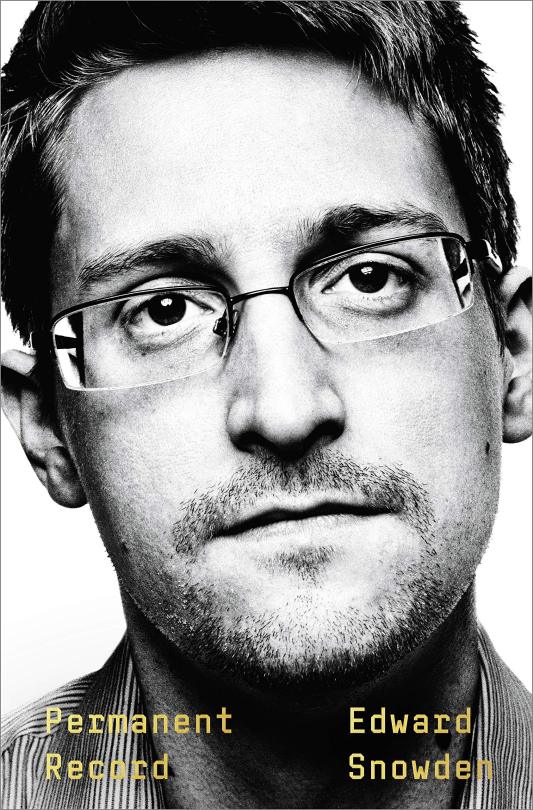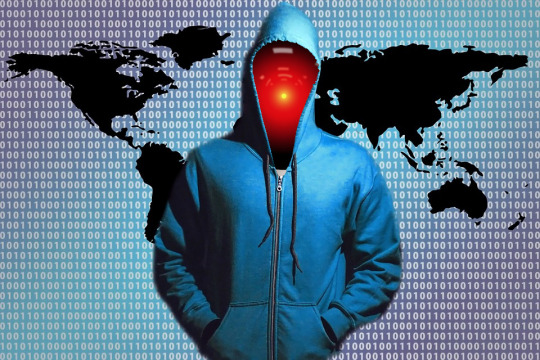#LOVEINT
Text

L’aria frizzante profumata di sale dell’estate era diventata bagnata odorante di terra, il sole al tramonto non si nascondeva più oltre Licata, aveva ripreso a tuffarsi nel mare e questi erano i segni che l’autunno stava iniziando a Gela, dove ancora nel 2014 risiedevo e lavoravo. Un’amica conoscendo la mia passione per la fotografia mi parlò di Instagram, dicendomi che era un’app che permetteva alle persone di condividere foto con una breve didascalia, sulla quale anche artisti e fotografi condividevano i loro lavori. L’applicazione era gratuita, bastava scaricarla, registrarsi creando un account e subito si potevano condividere foto, seguire altri user ed essere seguiti da follower.
Instagram è un social media, un servizio di rete sociale basato sulla condivisione di immagini, foto e video, creato nel 2010 e di proprietà di Meta e quindi di Mark Zuckerberg, dal 2012. Il nome deriva dall’unione dei termini Instant Camera e Telegram perché quando fu creata, i suoi sviluppatori la concepirono per consentire la condivisione di foto istantanee accompagnate da un breve testo, che potevano essere catturate dalla fotocamera del proprio cellulare, all’inizio solo per iPhone, e che potevano essere condivise subito in rete. Dalla sua nascita Instagram ha avuto una crescita ogni anno sempre maggiore in termini di numero di utenti e di sviluppo di interfaccia, desing e funzionalità, ma è rimasta sempre un’applicazione scaricabile gratuitamente.
Chiunque si occupi per passione o per lavoro di fotografia, o di immagini e grafica digitali, sa quanta memoria occupino sui propri supporti questi dati; e sa anche quanti giga si consumino nella condivisione di queste immagini, per cui senza voler essere maliziosi, viene da chiedersi come possa una piattaforma fornire gratuitamente, a milioni di utenti, uno spazio infinito di archiviazione di dati senza guadagnarci nulla. Persino un account di posta elettronica gratuito pone un limite di archiviazione di dati, superato il quale è necessario pagare il servizio, mentre invece, un social media offre a milioni di persone, la possibilità di archiviare le fotografie e i video di tutta una vita, senza chiedere in cambio niente.
Niente è gratuito, ogni volta che prendiamo qualcosa gratis la ripaghiamo in perdita di freschezza o di qualità del prodotto ma soprattutto in sicurezza per noi stessi.
Il termine account, letteralmente ‘conto’, o esteso user account ‘conto utente’, è preso dal linguaggio bancario e indica un conto corrente. Un conto bancario è generalmente nominale, infatti diamo il nostro documento d’identità per aprirne uno, ci consente di accedere a determinati servizi, ma cosa più importante ci consente di mantenere in sicurezza le nostre risorse economiche, se vogliamo ciò che ci permette di mantenerci, i nostri averi.
In informatica, un account è un utente registrato ed identificato presso un sito web, che ha la possibilità di usufruire dei servizi messi a disposizione dal sito. Il sistema informatico è in grado di riconoscere l’identità del titolare di un account, ne memorizza i dati e conserva informazioni ad esso attribuite, utilizzando questi dati e queste informazioni per generare un profilo utente associato all’account e permettergli così, di usufruire dei suoi servizi. Pensando al nostro account su Instagram, l’app conserva le nostre memorie fotografiche e i nostri video, il luogo, il giorno e l’ora in cui le abbiamo scattate e condivise, anche se i due momenti di cattura e condivisione possono non coincidere conserva tutti i dati; il nostro profilo permette all’app e agli altri di identificarci e questo ci consente di continuare a condividere le nostre immagini e i nostri video, per farci conoscere o fare conoscere le nostre opere, i nostri prodotti, le nostre abitudini, i nostri animali domestici, i nostri figli, le nostre figlie, i nostri amici, i posti che visitiamo viaggiando, ma anche informazioni come il nostro bar preferito, il nostro libro preferito, l’interno della nostra abitazione, il nostro volto.
È davvero un ‘conto corrente’ nel quale stiamo depositando il nostro tesoro più caro: la nostra vita e la nostra privacy. Ma questo ‘conto corrente’ non è nostro, appartiene all’applicazione che per funzionare correttamente deve anche avere il permesso di accedere alla nostra fotocamera, alla nostra galleria e ai nostri contatti. Instagram conserva i nostri dati e apprende informazioni su di noi e sul nostro comportamento attraverso l’utilizzo che facciamo non solo del servizio, perché autorizziamo il suo accesso a dati che non riguardano il servizio, riguardano la nostra privacy, apprende rastrellando dati anche quando non utlizziamo l’applicazione. Inoltre, attraverso una procedura gamificata ci addestra a condividere sempre di più e in maniera sempre più personalizzata le nostre vite, ci addestra a non poter più fare a meno di avere un account su Instagram, uno su Facebook, uno su WhatsApp, eccetera, eccetera.
È il caso di chiederselo: abbiamo un account su Instagram o siamo noi il ‘conto corrente’?
Quando nel 2014 anche io ho scaricato l’applicazione sul mio cellulare creando un mio personale account, non conoscevo niente di tutto questo, tanto che avevo creato il mio profilo con il mio nome, il mio cognome e persino la mia foto. Pensavo che si trattasse di un social che promuoveva davvero una libera condivisione, solo dopo molto tempo mi accorsi che nella piattaforma nulla era libero, ogni azione degli utenti veniva manipolata e veicolata secondo la logica della prestazione, mirando ad aumentare sempre di più il tempo di permenenza degli utenti stessi sulla piattaforma e in rete, aumentando così la loro condivisione di dati e metadati, e aumentando di conseguenza la qualità e la quantità d’informazioni su di noi, e i nostri comportamenti, che il sistema informatico poteva acquisire, conservare e utilizzare per gestire il nostro profilo.
Instagram era semplice da usare, la sua procedura era facile da apprendere, una volta creato il tuo profilo, potevi caricare dalla tua galleria una foto, o scattarla istantaneamente dal tuo cellulare (al tempo lo smartphone si chiamava cellulare, era ancora solo una cellula dello sviluppo tecnologico, non un telefono intelligente…), potevi aggiungere a piacere filtri, cornici, una breve didascalia, al tempo erano solo 160 caratteri e non c’erano gli emoji o come si chiamarono in principio gli emoticon, infine potevi postarla sul tuo profilo, dove sarebbe rimasta conservata sulla tua galleria personale. Postare una foto significava condividerla con i propri seguaci e, utilizzando gli hashtag, condividerla con chiunque avesse fatto una ricerca seguendo quel tema specifico, per esempio #natura. Adesso cosa sia un hashtag lo sappiamo tutti, ognuno ha un account su diversi social, ma al tempo era qualcosa di nuovo e aveva una funzione specifica, creare contesti e gamificarli, renderli un gioco con il quale attirare sempre più partecipanti.
L’interfaccia di Instagram nel 2014 era semplice, non molto differente da quella attuale, ma più essenziale e minimalista. La barra degli strumenti in basso aveva pochi comandi. Una home che, scorrendo il dito sullo schermo proprio come lo scorrere di una slot-machine, permetteva di vedere le pubblicazioni degli utenti seguiti, una lente d’ingrandimento per fare ricerca digitando uno specifico account o un hashtag, oppure seguire le proposte suggerite dalla piattaforma stessa in base alle tue preferenze, ai tuoi post e ai tuoi contatti. Al centro della barra degli strumenti c’era un simbolo, una croce dentro un quadrato che si utilizzava per caricare l’immagine che si voleva postare, a seguire un cuore, usato per visualizzare i like ricevuti, i follower aggiunti e le attività degli utenti che seguivi. L’ultimo simbolo a forma di omino con testa rotonda e una mezza circonferenza per busto, permetteva di accedere al proprio profilo, alla propria galleria. Non esistevano i messaggi diretti, non esistevano ancora i collage e le storie o le dirette, si poteva postare solo una foto per volta e la si poteva condividere solo nel formato 1:1, quello della fotocamera dei primi iPhone.
A quel tempo l’account ufficiale di Instagram ogni venerdì lanciava un contest, una call, un gioco a tema, gli instagramer erano chiamati a partecipare condividendo foto che avessero per tema quello scelto da Instagram e a condividerle con l’hashtag creato e suggerito dalla piattaforma. Avevano tempo fino al lunedì successivo, quando Instagram avrebbe postato nel corso della giornata, le foto dei cinque fotografi prescelti per aver rappresentato meglio il tema della competizione.
I vincitori guadagnavano solo la menzione e una quantità impressionante di follower, nessun guadagno economico o materiale era previsto. Il modello di gioco promosso da Instagram presto generò un moltiplicarsi di account tematici che pubblicavano, dandogli visibilità, le foto di account inerenti al loro tema o che postavano usando l’hashtag da loro creato. Lo si poteva fare con qualsiasi tema: tramonti sul mare, paesaggi innevati, il tuo gatto, la tua colazione, interni da sogno, hicking, si potevano creare infiniti contesti per invogliare gli utenti a condividere sempre di più, a seguire costantemente le attività sul social, a partecipare commentando, cliccando, ripostando.
Gli istagramer volevano vincere, essere menzionati, vedere la loro foto pubblicata, avere tanti follower. Iniziarono a nascere gli storytellers e tanti corsi per insegnare a tutti come avere successo su Instagram, che di solito avevano tra questi consigli quello di pubblicare costantemente, di essere sempre presenti. Nacquero app che permettevano di monitorare i propri miglioramenti sul social, alcuni acquistavano pacchetti di follower e tutti, proprio tutti volevano diventare virali. Arrivarono infine gli influencer che suggerivano a tutti cosa fare, come e quando farlo per raggiungere il successo che avevano raggiunto loro stessi con i propri post virali. Il primo consiglio degli influencer fu quello di metterci la faccia. I selfie divennero virali.
Chissà cosa penserebbe di queste metafore Susan Sontag se fosse viva oggi…
Non mi azzardo ad ipotizzarlo, certo è che il gioco a cui giochiamo senza rendercene conto, ha un obiettivo molto strano, quello di farci diventare virali, e una probabilità di essere raggiunto pari a quella di vincere la lotteria di Capodanno.
Il successo corrisponde alla fama, alla celebrità, alla ricchezza economica, al potere informatico; le regole del successo le dettano gli pseudoambienti gamificati, per vincere bisogna essere unici, competitivi e vincenti, quello che viene offerto in cambio è un antidoto alla solitudine, all’anonimato, è la sicurezza di esserci.
La paura di scomparire, quella di non essere nessuno, di essere dimenticati hanno a che fare con la paura della morte, sono le paure generate dalle questioni irrisolte di chi vuole percepirsi immortale, non vuole fare i conti con l’angoscia che questa evidenza genera, non vuole dover vivere la propria vita, includendo in essa l’informazione che è a termine e che quando finirà non potremo portare con noi nulla di quello che possediamo adesso, né titoli né tesori.
Come suggeriva Agnese Trocchi la ludicizzazione dei contesti è rassicurante, tende all’infantilizzazione del comportamento, a scoraggiare la facoltà di scegliere, a non sviluppare una riflessione autonoma, ad agire secondo modalità automatizzate e a ci porta a trascorrere molto del nostro tempo guardando uno schermo convinti di stare condividendo qualcosa con i nostri simili.
La paura e la solitudine trovano un piccolo sollievo quando dopo aver postato una foto i nostri seguaci lasciano un commento, ci augurano una buona serata, lasciano una fila di emoji. Commentiamo a nostra volta le foto degli account che seguiamo e mandiamo avanti questa pseudosocialità, fatta di giochi, di chiamate alla competizione, di complimenti, di insulti, di storie d’amore, di amicizie che spariscono così come sono arrivate nel nulla, di micro mondi che imitano e riproducono il mondo reale. Lo facciamo senza rendercene conto, ogni giorno dedichiamo tempo al nostro profilo, alla nostra comunità ma le regole non cambiano e la paura e la solitudine restano proprio lì dove le abbiamo lasciate, prima di metterle in standby giusto il tempo di essere assorbiti dal flusso gamificato del social. Così come aveva suggerito Sontag, strumentalizzare la paura del contagio aveva avuto l’effetto di isolare le persone le une dalle altre, di scoraggiare il contatto e la socialità fatta di incontri e di prossimità, di incoraggiare una salute fisica che fosse più orientata all’estetica dei corpi e al loro apparire su uno schermo televisivo, tanto che la tecnologia ha veramente fornito oggi nuovi e popolari strumenti per stimolare il desiderio, proteggendolo dai rischi e rendendolo il più possibile mentale.
Il desiderio è mentale e anche questo come la paura e la solitudine è stato addestrato.
Roma 19 dicembre 2022 h: 18:48 am – 29 dicembre 2022 h: 1:08 pm
Capitolo 15 Love Gaming - IV Parte
#LOVEINT#diariodiunaresistenza#social media#account#abusodipotere#gamificazione#lovegaming#loveintblog#libertà#privacy#stalking online#verità#azione#potere
3 notes
·
View notes
Link
Check out this listing I just added to my Poshmark closet: HP 15.6 AMD R7 5700U/64GB/2TB SSD/Dual-Band Wifi 6 *Custom Spec and Open Box*
#laptop laptops computer computers#DebateNaGlobo นายก8ปี 今月描いた絵を晒そう HomeSweetHomeBamBam ประยุทธ์ออกไป SpiritualKnowledge_OnNavratri 2Baddies1stWin LoveinT
0 notes
Text
This day in history

Going to Burning Man? Catch me on Tuesday at 2:40pm on the Center Camp Stage for a talk about enshittification and how to reverse it; on Wednesday at noon, I'm hosting Dr Patrick Ball at Liminal Labs (6:15/F) for a talk on using statistics to prove high-level culpability in the recruitment of child soldiers.
On September 6 at 7pm, I'll be hosting Naomi Klein at the LA Public Library for the launch of Doppelganger.
On September 12 at 7pm, I'll be at Toronto's Another Story Bookshop with my new book The Internet Con: How to Seize the Means of Computation.

#20yrsago BBC to put its entire archive online http://news.bbc.co.uk/2/hi/entertainment/3177479.stm
#20yrsago Citytv invents live television blogging https://memex.craphound.com/2003/08/24/citytv-invents-live-television-blogging/
#20yrsago Save Christiania, August 30th march in Copenhagen https://memex.craphound.com/2003/08/24/save-christiania-august-30th-march-in-copenhagen/
#15yrsago Kids can’t “go out and play” anymore https://www.latimes.com/archives/la-xpm-2008-may-15-oe-brooks15-story.html
#15yrsago Mickey Mouse bridges the culture war when teaching evolution to evangelical students https://www.nytimes.com/2008/08/24/education/24evolution.html
#10yrsago LOVEINT: NSA spooks illegally stalking their romantic interests https://www.wsj.com/articles/BL-WB-40005
#10yrsago Why it matters that you can’t own an electronic copy of the Oxford English Dictionary https://www.theguardian.com/technology/2013/aug/23/oxford-english-dictionary-future-digitally
#5yrsago Law and Order Republicans have suddenly discovered the undeniable injustice of “flipped” prosecution witnesses https://www.washingtonpost.com/outlook/yes-witnesses-flipping-does-corrupt-justice-but-not-because-theyre-rats/2018/08/23/c88871c4-a71e-11e8-a656-943eefab5daf_story.html
#5yrsago TSA racially profiles Muslim woman, makes her show her bloody sanitary towel https://www.washingtonpost.com/opinions/i-may-have-to-quit-harvard--because-the-tsa-wont-stop-searching-me/2018/08/14/0dbdbb72-9a55-11e8-b55e-5002300ef004_story.html
#5yrsago The Democratic Party is surging thanks to leftist policies, but its leadership are convinced they have to stop it https://www.reuters.com/investigates/special-report/usa-election-progressives/
#5yrsago Prisoners in 17 states are on strike, demanding an end to prison slavery and basic human justice https://theintercept.com/2018/08/21/prison-strike-2018-attica/
#5yrsago “Bad health care has killed more American artists than I can list” https://austinkleon.com/2018/08/18/single-issue-voter/
#5yrsago Britain is a money-launderer’s paradise, Part LXII https://www.buzzfeed.com/janebradley/shell-companies-money-laundering-uk-paul-manafort
#1yrago Trump gave Moderna all the patent-waivers it needed to make a vaccine https://pluralistic.net/2022/08/24/waivers-for-me-not-for-thee/#vaccine-apartheid
5 notes
·
View notes
Photo

⚽⚽⚽⚽⚽⚽⚽⚽⚽⚽⚽⚽ Chi vincerà lo scudetto? Ovviamente gli #interisti dicono "noi" 👍 Staremo a vedere ma... Se sei un vero tifoso #neroazzurro ⚫🔵 Devi venire a trivarci #festiamostoresanremo #fstiamoshop #festiamo #festiamostoregenova #bigideaslowcost easlowcost #inter #fcinternazionale #intermilan #soccerparty #loveinter #tifoso #partydecor #festainter #calcio #goodidea https://www.instagram.com/p/CCyc4-1gSlJ/?igshid=q6grdgaischz
#interisti#neroazzurro#festiamostoresanremo#fstiamoshop#festiamo#festiamostoregenova#bigideaslowcost#inter#fcinternazionale#intermilan#soccerparty#loveinter#tifoso#partydecor#festainter#calcio#goodidea
0 notes
Photo

Dolls we were not born into this beautiful world to be stationary. Get out there and make the world yours. Each of us were born with a special gift inside of us waiting to be shown to the world. Don't die with your gift never making it to the surface of your inter will. God speed! Surrender to your inter will and bring forth the divine order of your essence.#godfirst #godisincontrol #godismystrength #godovereverything #intentionalliving #livingintentionally #namaste #carpediem #365project #shineyourlight #jesusislord #jesusislove #jesusislife #loveintently #prayerwarrior #firstloveyou #selflove #selfcare #selfawareness #daretobedifferent #daretobeloved #laughoutlouder #laugh #love #live your intentional life in Jesus name! #amen #inspireothers #armourofgod #consistencyiskey (at Shine Bright) https://www.instagram.com/p/B779oYKBOuV/?igshid=65djkgibaaj4
#godfirst#godisincontrol#godismystrength#godovereverything#intentionalliving#livingintentionally#namaste#carpediem#365project#shineyourlight#jesusislord#jesusislove#jesusislife#loveintently#prayerwarrior#firstloveyou#selflove#selfcare#selfawareness#daretobedifferent#daretobeloved#laughoutlouder#laugh#love#live#amen#inspireothers#armourofgod#consistencyiskey
0 notes
Text
Interesting articles – Wednesday, 10/28/2020
Four by Cory:
Ferris wheels are being converted to fine dining restaurants. (Cory Doctorow/Pluralistic)
Congress has granted Presidents dictatorial powers over the years, and keeps forgetting to take them back. (Cory)
Comcast’s cable service notifies its customers that it might lose access to TV channels due to an internal dispute with another division of Comcast (Cory) – Comcast customers may lose access to the channels – Bravo, CNBC, E!, Golf Channel, MSNBC, Olympic Channel, Oxygen, Syfy, Telemundo, Universal Kids, NBC Universo, USA Network and NBC Sports Network – which are owned by another division of the same company.
Men who work at surveillance startup Verkada used its own tools to harass female colleagues. (Cory, again)
It’s almost as though being the kind of person who dreams of achieving incredible wealthy by spying on people makes you kind of an asshole….
Male Verkada employees maintained a private Slack channel where executives posted photos of female employees – captured with the company’s own surveillance tools – and made sexually explicit remarks about them.
When this came to light, the company’s founder and CEO Filip Kaliszan called an all-hands meeting, expressed disappointment in the harassers, and told them that they could either quit…or lose some stock options. They chose the latter and remain employed there to this day….
Verkada isn’t alone in being a creepy company run by creeps. Recall Facemash, Mark Zuckerberg’s prototype for Facebook, was created to nonconsensually rate the suitability of his female Harvard classmates for sexual congress.
And remember LOVEINT, the NSA’s cutesy codeword for the illegal use of its mass-surveillance tools by male spies to stalk women using the awesome power of the US intelligence apparatus.
10 notes
·
View notes
Photo

Machtmissbrauch durch LOVEINT: ""Sie lasen deren E-Mails, hörten deren Telefongespräche ab und stalkten sie online""
0 notes
Text
The Decade We Learned There’s No Such Thing as Privacy Online
In the past ten years, we lost hope in American politics, realized we were being watched on the internet, and finally broke the gender binary (kind of). So many of the beliefs we held to be true at the beginning of the decade have since been proved to be false—or at least, much more complicated than they once seemed. The Decade of Disillusion is a series that tracks how the hell we got here.
The last decade has seen no limit of scandals highlighting how personal privacy in the internet era doesn’t actually exist. Whether we’re talking about wireless carriers selling your daily location data to any nitwit with a nickel, or incompetent executives leaving consumer data openly exposed on the Amazon cloud, calling the last decade ugly would be an understatement.
What’s more the government, utterly captured by the industries it’s supposed to hold accountable, has proven feckless in the face of the threat. The United States still lacks any meaningful law governing behavior in the internet era, and the glaring lack of accountability couldn’t have been made any more obvious over the last ten years.

2010: The Rise of the Internet of Very Broken Things
During the late 90s and early aughts, “internet of things” evangelists routinely heralded a hyper-connected future, where everything from your refrigerator to your tea kettle would be connected to the internet. The end result, they promised, would be unprecedented convenience and a Jetsons-esque future, contributing to a simpler, more efficient existence.
The end result wasn’t quite what was advertised.
A lack of any meaningful privacy or security safeguards quickly ruined the party, turning the IoT revolution into the butt of endless jokes. Throughout the decade, evidence emerged that everything from your “smart” television to your kid’s WiFi-enabled Barbie doll was easily hackable, showcasing that the smarter choice is often dumber, older tech.

May 2013: Edward Snowden reveals the NSA's surveillance dragnet
Snowden, the most famous whistleblower of a generation, gave thousands of classified NSA documents to journalists Glenn Greenwald and Laura Poitras. The documents showed in great detail how the post 9/11 intelligence apparatus was collecting data in bulk on American citizens and people around the world through programs like PRISM, XKeyscore, LoveINT, and a host of others. The revelations showed that the NSA had backdoors into the databases of many of Silicon Valley's largest companies, that it was surveilling world leaders and American allies, and that the U.S. government's surveillance state had become ever present in American life.
Snowden's revelations were published over the course of years—this slow drip of information kept Snowden, NSA surveillance, and privacy in the news, making it an ongoing national conversation over the entire decade.

August 2013: Hackers steal the data of 3 billion Yahoo users
In September 2016, as the company attempted to sell itself to Verizon, Yahoo belatedly revealed it had been the victim of a series of major hacks in 2013 and 2014. After initially claiming that 500 million users were impacted, it would later acknowledge that the hack impacted roughly 3 billion users, the biggest data breach in U.S. history.
Yahoo would ultimately have to pay a $35 million penalty to the Securities and Exchange Commission for pretending the hacks never happened, and another $80 million as part of a class action settlement. But as with most “punishment,” much of the money went to lawyers, and the penalties paled in comparison to the money made from monetizing user data.

2017: Congress helps big telecom kill FCC privacy rules
Big telecom has always had a flippant relationship when it comes to respecting your private data. For years ISPs quietly monetized your every online click, and have even charged customers significantly more if they wanted their privacy respected. In 2014, Verizon was busted modifying user data packets to covertly track users around the internet without telling them.
In 2016 the FCC under Tom Wheeler tried to do something about it, passing some modest broadband privacy rules that would have forced ISPs to be transparent about what data was collected and sold, and to whom. The rules would have also required that consumers opt in before ISPs and mobile carriers could share and sell more sensitive financial data.
But in 2017 the House and Senate voted to eliminate those rules at the behest of industry, opening the door to years of additional abuse by the sector.

March 2017: The Equifax hack heard around the world
The last decade saw no shortage of breaches that exposed mountains of personal data, be it the hack of Marriott (500 million customers), Adult Friend Finder (412.2 million users) or EBay (145 million). But none highlighted corporate incompetence or government fecklessness quite like the 2017 hack of Equifax, which exposed the financial data of 145 million Americans.
In part because data would later reveal that Equifax knew about the vulnerability and did nothing about it. But also because the punishment doled out by the FTC—which included a $125 cash payout that disappeared when consumers went to collect it—showcased a feckless government incapable and unwilling to seriously rein in corporate America’s incompetence and greed.

2018: Facebook lets Cambridge Analytica abuse your private data
While Cambridge’s abuse of Facebook data was first reported in 2015, it wasn’t until 2018 that people realized the full scope of the problem. For years Facebook casually allowed third-party app-makers unfettered access to consumer datasets, allowing outfits like Cambridge to weaponize your personal information in the lead up to the 2016 election.
Privacy experts like Gaurav Laroia tell Motherboard that pound for pound, no event in the last decade had as much of an impact on public perception as Facebook’s epic face plant.
“The Cambridge Analytical scandal had the right combination of scale, malfeasance, and consequence to sear into everyday Americans how companies like Facebook sell access to our personal information and how dangerous that can be,” Laroia said.
“That a researcher was able to take the profile information of tens of millions of Americans and sell it to an unscrupulous company with little consequence, in violation of an agreement with Facebook, showed how industry self-regulation has failed and why the government must act to protect our privacy,” he added.

2019: Wireless carriers busted selling your cell phone location data
Thanks in no small part to Congress’ decision to kill FCC broadband privacy rules in 2017, there’s been little penalty for telecom giants that abuse your private information. Case in point: Motherboard’s blockbuster January, 2019 investigation showing that wireless carriers routinely sell your every waking movement to a wide variety of often dubious middlemen.
The investigation resulted in numerous calls for action by politicians like Senator Ron Wyden, though to date nobody—be it the FCC or Congress—has actually lifted a finger to stop the practice or forced the deletion of decades’ worth of your daily location data.
The decade’s theme couldn’t be more obvious: either via corruption, incompetence, or apathy, giant corporations routinely pay empty lip service to consumer privacy, before engaging in face plant after face plant. Just as often, the government’s response to a chorus line of piracy scandals has ranged from underwhelming to nonexistent.
Part of the problem is US regulators enjoy a tiny fraction of the resources given to privacy regulators overseas, and thanks to industry lobbying, the U.S. still lacks any kind of meaningful privacy law for the internet era. While efforts are afoot to change that, a cross-industry coalition of lobbyists is working hard to ensure this dysfunctional status quo never changes.

The Decade We Learned There’s No Such Thing as Privacy Online syndicated from https://triviaqaweb.wordpress.com/feed/
0 notes
Photo


Why should you care about your privacy?
As said by reddit user ourari:
First, any collection of data puts you at risk, because data can and will be leaked, stolen, exposed, mishandled, etc. It will be used in ways you can't predict, and you might not be aware of what is out there.
Identity theft is a common threat. Credit cards and mortgages in your name, etc. I'm assuming that's easy to understand and research even for a noob ;)
Another common threat: What is legal today, may be illegal tomorrow. You may live in a democracy with rule of law today, but that also may be gone tomorrow. If there is a permanent record of your views, activities, and contacts in the past, you may be judged for them along the rules of tomorrow. (Tip: The show The Handmaid's Tale does a good job of fleshing this out.)
To quote Snowden's book: “Once the ubiquity of collection was combined with the permanency of storage, all any government had to do was select a person or a group to scapegoat and go searching - as I'd gone searching through the agency's files - for evidence of a suitable crime”
Next up: Misuse by employees of companies/agencies that collect your data.
https://www.wired.com/2010/09/google-spy/
https://www.theregister.co.uk/2017/07/26/uk_police_data_handling_foi/
https://en.wikipedia.org/wiki/LOVEINT
Your data will also be used in the future in ways that the average Joe can't begin to predict today. People who uploaded their photos to Facebook in the late 2000s had no clue they would later be used to create and perfect facial recognition. Even if they had, they wouldn't have been able to predict that their FB activity would be used to perfect this:
a leaked confidential document prepared by Facebook that revealed the company had offered advertisers the opportunity to target 6.4 million younger users, some only 14 years old, during moments of psychological vulnerability, such as when they felt “worthless,” “insecure,” “stressed,” “defeated,” “anxious,” and like a “failure.”
Source: https://www.wired.com/2017/05/welcome-next-phase-facebook-backlash/
Or this:
Leila is a sex worker. She goes to great lengths to keep separate identities for ordinary life and for sex work, to avoid stigma, arrest, professional blowback, or clients who might be stalkers (or worse).
Her “real identity”—the public one, who lives in California, uses an academic email address, and posts about politics—joined Facebook in 2011. Her sex-work identity is not on the social network at all; for it, she uses a different email address, a different phone number, and a different name. Yet earlier this year, looking at Facebook’s “People You May Know” recommendations, Leila (a name I’m using using in place of either of the names she uses) was shocked to see some of her regular sex-work clients.
Source: https://gizmodo.com/how-facebook-outs-sex-workers-1818861596
Now imagine the same thing happening with a journalist's secret source. Or a dissident from a country with less than stellar respect for human and civil rights.
With enough information, your data can be used to build a psychological profile of you; What do you like, why do you like it, how do you feel, where are you vulnerable, etc. Just like computer systems, our brains are vulnerable in shared and unique ways, and those vulnerabilities can be exploited through manipulation. In other words: what you are exposed to can change how you think or behave and that mechanism can be weaponized.
I included a few recent, high-profile examples.
Voter manipulation:
One of the big issues with the Cambridge Analytica controversy centers on how the data was collected. According to reports In the New York Times and elsewhere, Cambridge solicited personal information through an app with misleading disclosure as to the purpose and intent. The solicited various types of information, some of which seems innocuous, such as college majors and political affiliation, but the app also included personality assessment questions to generate personality profiles.
Sources:
https://www.psychologytoday.com/us/blog/positively-media/201803/how-cambridge-analytica-mined-data-voter-influence
https://www.nytimes.com/2018/03/19/technology/facebook-cambridge-analytica-explained.html
Destabilizing society:
Russia's campaign to destabilize American society by putting pressure on divisions in that society through targeted ads:
https://www.theatlantic.com/international/archive/2018/02/russia-is-still-exploiting-americas-divisions/553016/
These examples only scratch the surface. There is so much more. Just off the top of my head: predictive policing, automated inequality. I could go on for hours ;)
I'll just leave you with another quote from Snowden's book:
“This, to my thinking, actually represented the great nexus of the Intelligence Community and the tech industry: both are entrenched and unelected powers that pride themselves on maintaining absolute secrecy about their developments. Both believe that they have the solutions for everything, which they never hesitate to unilaterally impose. Above all, they both believe that these solutions are inherently apolitical, because they’re based on data, whose prerogatives are regarded as preferable to the chaotic whims of the common citizen.”
0 notes
Text
Our Surveillance Society: Why Don’t We Care?

“Snowden’s book is straightforward, admirably so. He has taken the risk of assuming that his reader is interested not only in his “moment of vision” and the brazen act that earned his fame and notoriety, but also in the formation of his personality, and the slow growth of his understanding of technology, espionage, surveillance, and human rights.”
“How does one decide to become the dissident, the scapegoat, the whistleblower? Snowden seems as mystified as we are. It is as if one day the question simply appears, fully formed: Why am I the one who cares? Why am I haunted by the eyes of the boy in his father’s lap while other operatives with access to XKEYSCORE are busy collecting nudes and stalking ex-girlfriends? (Alas, yes. They even have a nickname for it: LOVEINT, a satirical variation on HUMINT and SIGINT—human and signals intelligence.) “To whom could I turn?” he writes. “Who could I talk to? Even to whisper the truth, even to a lawyer or a judge or to Congress, had been made so severe a felony that just a basic outlining of the broadest facts would invite a lifetime sentence in a federal cell.”
“As for the constants of surveillance and self-surveillance, these end in stalemate. Or perhaps it is a form of Stockholm Syndrome, of learned helplessness. In my own half-assed survey, nearly anyone, reminded of the facts of either corporate or NSA command of their data and metadata, tends to exhibit a throb of outrage, swiftly followed by a shrug of resigned, ironized acceptance: Sure, that happened, but me, I’ve got nothing to hide. Or: I was on their watch-list anyway. Or: It often recommends bands I wouldn’t have known about! Snowden’s implicit question, throughout his book, is: Why can’t I make people care?”
New York Review of Books, October 19, 2019: “Snowden in the Labyrinth,” by Jonathan Lethem
Our Surveillance Society
“In 2015, two of the school’s [University of Washington] computer science professors — Ira Kemelmacher-Shlizerman and Steve Seitz — and their graduate students used the Flickr data to create MegaFace. Containing more than four million photos of some 672,000 people, it held deep promise for testing and perfecting face-recognition algorithms.”
“In 2015 and 2016, the University of Washington ran the ‘MegaFace Challenge,’ inviting groups working on face-recognition technology to use the data set to test how well their algorithms were working. The school asked people downloading the data to agree to use it only for ‘noncommercial research and educational purposes.’ More than 100 organizations participated, including Google, Tencent, SenseTime and NtechLab. In all, according to a 2016 university news release, ‘more than 300 research groups’ have worked with the database. It has been publicly cited by researchers from Amazon and, according to Mr. Harvey, Mitsubishi Electric and Philips.“
“MegaFace remains publicly available for download. When The New York Times recently requested access, it was granted within a minute.”
The New York Times, October 13, 2019: “How Photos of Your Kids Are Powering Surveillance Technology,” by By Kashmir Hill and Aaron Krolik
The Guardian, October 5, 2019: “'We are hurtling towards a surveillance state’: the rise of facial recognition technology,” by Hannah Devlin
Cybersecurity industry short of skilled workers hasn't fully explored one solution: Women
“The cybersecurity industry desperately needs more skilled workers to help protect our data, yet experts in the field say it has only just begun to explore one obvious solution: recruit more women. Recent high-profile data breaches at three Ontario hospitals, credit-monitoring agencies TransUnion and Equifax … compromised the sensitive information of millions of Canadians. These serve as powerful examples of a growing problem. ‘National and economic security depends on strong cybersecurity defences, and most nations are lacking,’ said industry veteran Lisa Kearney. Yet in the 24 years she's been in the field … she has only worked with ‘a handful’ of other women, raising questions about why nearly half of the potential workforce is giving the industry a pass when so much rides on filling those empty positions. … In Canada, women make up only about 10 per cent of the cybersecurity workforce, she said.”
CBC News, October 16, 2019: “To keep data safe, companies must recruit more women in cybersecurity, experts say,” by Brandie Weikle
The Guardian, October 15, 2019: “Without encryption, we will lose all privacy. This is our new battleground,” by Edward Snowden
Women CyberSecurity Society
China: life in the surveillance state
"’In China, you never know exactly what is forbidden,’” says a Chinese rapper in David Verbeek’s short documentary Trapped in the City of a Thousand Mountains. ‘That’s actually a very clever tactic. It makes everyone more careful. Without a clear boundary, people will be more prone to self-censor.’"
“The atmospheric film follows a group of Chinese rappers through the streets of Chongqing, one of China’s largest cities, as they discuss life in the surveillance state as marginalized musicians.”
The Atlantic, October 11, 2019: “Chinese Rappers Will Not Be Silenced,” by Journeyman Pictures (YouTube Video 22 min. : 31 sec.)
#Snowden#whistelblower#internet#surveillance#technology#human rights#facial recognition technology#China#rappers#Chinese rappers
0 notes
Text
Runtime Error
int love;
LOVEINT <-
function(love) {
for (i in 1:Inf) {
love[i] != NA -> LoveBoole.r
LoveBoole.r + "Love" -> love[i]
}
return() #empty-handed
}
3 notes
·
View notes
Text

La paura è l’emozione che proviamo quando siamo dinnanzi a un pericolo, la paura è il campanello d’allarme che attiva il nostro istinto di sopravvivenza, che ci fa conservare la vita. La paura minaccia uno dei bisogni primari e fondamentali dell’essere umano, il bisogno di sicurezza. Nella piramide dei bisogni di Maslow, dove i bisogni che stanno alla base sono i più importanti, sono quelli necessari per dare stabilità all’essere umano, il bisogno di sicurezza è il secondo dopo le esigenze fisiologiche (mangiare, bere, dormire, ecc,) e precede il bisogno di affiliazione (relazioni sentimentali, familiari, amicali, sociali, ecc.).
La paura di un pericolo per la nostra vita minaccia il bisogno fondamentale di sicurezza, il nostro corpo si attiva per ripristinarlo con un’operazione semplice: raccoglie informazioni sul pericolo, perché queste permetteranno di scegliere come agire nella maniera più vantaggiosa. Superato il pericolo, correremo nel nostro posto sicuro e solo in quel momento, il corpo spegnerà il suo programma di allarme e potrà lentamente ristabilire i suoi equilibri neurormonali. Questo è lo schema che noi esseri umani come anche gli animali, mettiamo in atto per reagire al pericolo, quando l’evento pericoloso termina, che si superi illesi o anche danneggiati, poter far ritorno al proprio posto sicuro, che sia la nostra casa, le persone che amiamo, i nostri amici, un animale, un luogo, qualsiasi relazione che ci faccia sentire al sicuro, è ciò che fa cessare la paura. Siamo al sicuro, non ha più necessità di farsi sentire, il suo campanello d’allarme ha funzionato innescando il processo che ha permesso di tirarci fuori dal pericolo, può estinguersi.
La paura ha finito il suo compito, ci ha salvato la vita. La paura però, non l’ansia.
L’ansia è qualcosa di differente, è la paura senza pericolo imminente, è la paura senza oggetto, è quella del sento che accadrà qualcosa di brutto, è quella che fa scappare da posti percepiti pericolosi ma che altri sentono come sicuri, che fa scendere dagli autobus, uscire da un bar troppo affolato, è l’ansia della folla, del contagio, del diverso, dell’abbandono, l’ansia della prestazione, l’ansia di un nemico invisibile che arriverà non si sa quando o dove, ma si sa che arriverà.
L’ansia a differenza della paura è un programma di allarme che non si spegne mai, con costi onerosissimi per la salute psicofisica della persona. A differenza della paura che raccoglie informazioni, l’ansia ha un’unica reazione, la fuga. L’ansia, o il panico che ne è una manifestazione, sono sensazioni impossibili da attraversare, si devono solo fuggire, interrompere subito, allontanadosi dal pericolo percepito o evitando il pericolo previsto. Dall’ansia si fugge e ci si calma eseguendo azioni ripetitive, come giocare a tetris, o fare la maglia, o come entrare in un flusso gamificato.
L’ansia, a livello neuropsicofisiologico, è una risposta che abbiamo appreso quando eravamo piccoli e abbiamo vissuto, una o più, situazioni in cui ci siamo sentiti in pericolo e non abbiamo avuto modo né di tirarci fuori da quel pericolo, né abbiamo trovato un posto sicuro dopo, quando terminato il pericolo, non c’era nessuno che ci facesse sentire al sicuro o che ci spiegasse cosa fosse accaduto, permettendoci di ristabilire i nostri normali livelli fisiologici e percercepire un senso di sicurezza.
E quando siamo bambini non capiamo quello che ci succede. Quando siamo bambini vogliamo sempre giocare, vogliamo solo giocare, il gioco ci fa crescere e ci calma, ci fa stare in relazione con i grandi e con i pari. Ci aiuta ad imparare, i bambini e le bambine amano ripetere i giochi che li rendono sempre più bravi e competenti e spesso, quelli che hanno vissuto un evento traumatizzante, ripetono gli eventi vissuti riproducendoli nei loro giochi. È la loro maniera di elaborarli.
Il pericolo di un’altra guerra mondiale, quello di una guerra nucleare, la fine delle risorse, la crisi climatica, una nuova pandemia peggiore di quella da Sars-Covid-19, sono tutte situazioni che sostengono un funzionamento della società basato sull’ansia, l’ansia del futuro. Queste spade di Damocle che pendono sulla testa dell’umanità sono esattamente le stesse che 38 anni fa, aveva indicato Susan Sontag, le stesse identiche. Anche la disinformazione e la loro strumentalizzazione sono rimaste le stesse.
Decidere di strumentalizzare i problemi profetizzando apocalissi e creando nemici invisibili, ha l’unico risultato d’impedirci di affrontare i problemi, di comprenderne i processi, di dargli significato, di affrontarli, di occuparcene.
La pre-occupazione è una strada inaccesibile con lavori in corso che non finiscono mai.
La paura non va confusa con l’ansia. Sono le nostre ansie che vengono strumentalizzate, per indurci a uno stato di infantilizzazione che ci porta a voler fare di ogni cosa un gioco, a voler sempre giocare, giocare e vincere, vincere tutto, vincere sempre.
La paura è l’avvertimento che qualcosa sta minacciando il nostro senso di sicurezza e serve ad attivare una risposta per fronteggiare il pericolo, questa risposta inizia con la ricerca di informazioni corrette che ci permettano di agire per ristabilire il senso di sicurezza perduto. Non dobbiamo combattere o fuggire la paura, non va ignorata, è ciò che ci dice che abbiamo bisogno di conoscere meglio qualcosa, di capirla, di averci a che fare. La paura è anche ciò che ci spinge a cercare i nostri simili, a unirci a loro per aumentare la nostra conoscenza, la nostra forza, la nostra resilienza, che ci spinge a sviluppare un senso di comunità, di appartenenza. Allo stesso modo non dovremmo temere e nemmeno sfuggire la nostra solitudine. I social media riescono ad isolarci davvero completamente, dai nostri simili, coi quali possiamo non incontrarci mai ma avere un rapporto quotidiano attraverso chat e messaggerie, e ci isolano anche da noi stessi, dalla nostra capacità di stare soli, di conoscerci, di occupare il tempo e lo spazio della solitudine con qualcosa che sia solo nostro e per noi. Di poter trascorrere un tempo sereno in compagnia di noi stessi, la possibilità di avere una relazione intima con noi stessi. La pratica yoga, la mindfulness, la meditazione sono tutte pratiche che cercano di insegnare allo spirito, o alla psiche, attraverso l’esercizio corporeo, quello che il Professor Renzo Carli ha definito una Competenza alla solitudine, la capacità che ognuno dovrebbe acquisire di stare da solo o da sola, non come fuga per proteggersi dagli altri e nemmeno come l’esito fallimentare del nostro successo sociale, ma come una competenza appunto, una capacità acquisita, una maniera di essere sani e sereni.
Mi piace stare insieme agli altri, mi piace stare con i miei amici, mi piace conoscere le persone ma ho sempre avuto bisogno anche di trovare spazi soltanto miei in cui fare o anche non fare niente, per poi ritornare a stare con gli altri. Questi spazi erano una sorta di feste private durante le quali disegnavo, leggevo, scrivevo, spesso ballavo, mettevo su la mia playlist preferita e ballavo. Oppure, stavo sdraiata sul divano a fissare il soffitto, pensando a qualcosa mentre guardavo scene con gli occhi della mente. Era la mia solitudine e non la pativo.
Al tempo potevo scegliere se stare da sola o in compagnia, adesso che sono obbligata a stare sola con una compagnia indesiderata, patisco la mia solitudine.
Nel 2014 vivevo a Gela già da cinque anni e avevo raggiunto un livello di compentenza alla solitudine che definirei Elevato, la socialità e la vita culturale del paese consistono nella ristorazione e nella frequentazione di pub e locali con musica ad alto volume e fiumi di alcol che scorre, così esclusi gli amici di una vita, la mia vita sociale era veramente povera e sentivo il bisogno di connettermi e incontrare qualcuno che mi stimolasse intellettivamente, culturalmente, artisticamente o in qualsiasi altro avverbio che si riferisca a tutto ciò che gli esseri umani sono in grado di produrre di bello o di utile. Ritengo che quando entrai su Instagram, stavo cercando proprio questo, qualcuno dall’altra parte del Mondo che avesse qualcosa da raccontare, una foto da mostrare, un nonsoché che mi avrebbe fatto riflettere, o sorridere. E quello che trovai fu sorprendente.
Il mio username era @alereale_lol e la didascalia sul mio profilo appena sotto la mia faccia sorridente, recitava in Inglese: Quello che vedo come lo vedo per voi con gioia. Pollianna, Candy-Candy, Memole, Giorgy e tutti quei personaggi femminili dei cartoons che hanno nutrito quelli che, come me, erano bambini negli anni Ottanta e che erano buonissimi, dolcissimi, sempre pronti a perdonare tutto e tutti, anche quando la vita li schiacciava nei peggiori modi possibili, mi facevano un baffo. Ero su Instagram con l’intenzione di condividere gioia. Quasi un ecoattentato a pensarci oggi.
Entrai e chiaramente la prima persona che seguii fu la mia cara amica Annalisa, la stessa che mi aveva parlato della piattaforma e la stessa, che in un capitolo precedente di questo blog, ho ringraziato per essere stata una delle oasi che mi hanno dato rifugio nei momenti più difficili di questa storia. Dopo, non sapendo bene che fare, segui i suggerimenti di Instagram il cui account ufficiale svettava in cima alle proposte, seguirlo mi sembrò un modo adeguato per iniziare a capire come funzionasse il social. Al secondo posto dopo Instagram, c’era l’account di un fotografo del Regno Unito, sul suo profilo c’era la sua foto, un profilo in bianco e nero, che non mostrava il volto completo né lo sguardo. Nella sua galleria c’erano molte foto, alcune che avevano vinto dei concorsi. Non era soltanto un fotografo naturalista o paesaggista, era un fotografo concettuale che utilizzava il linguaggio metaforico della poesia e della letteratura per comporre le sue immagini. Ogni minimo dettaglio all’interno della cornice era stato incluso consapevolmente, perché ogni dettaglio dell’immagine serviva a decifrare il messaggio nascosto, ma non come un indovinello, come un personale linguaggio figurativo, esattamente come in pittura dove ogni elemento è simbolo, ogni simbolo un pezzo di un significato che va oltre l’immagine raffigurata. In più, le didascalie che accompagnavano le sue foto erano divertenti, erano ironiche o candidamente buffe. Mi piaceva, così non soltanto iniziai a seguirlo, ma visitai tutta la sua galleria, lasciando like e commenti. Qualche giorno dopo rispose a qualcuno dei commenti che avevo lasciato, ma non mi seguì a sua volta e questo fu qualcosa che mi confuse a lungo.
Non mi seguiva, quindi non poteva sapere quali fossero le mie attività, cosa postavo o chi seguissi, eppure ogni volta che accedevo all’app era lì, pronto a comunicare o meglio a giocare a quello che ho definito Love Gaming, ovvero la gamificazione delle relazioni sentimentali virtuali.
Roma 30 dicembre 2023 h: 3:37 pm
Capitolo 16 Love Gaming – V Parte
#LOVEINT#Loveintblog#Love Gaming#stalkingonline#gamification#privacy#paura#solitudine#social media#loveintblog#libertà#potere#stalking online#verità#azione#abuso
0 notes
Photo

#LoveFiercely #LoveIntently #FindingJoy http://www.seekingjoyinpain.com/finding-joy-book.html
0 notes
Text
Surveillance startup protected sexual harassers

Surveillance companies assure us that they employ safeguards to ensure that their customers aren't abusing their products to engage in unlawful or unethical surveillance. And yet, inevitably, these companies abuse their tools THEMSELVES.
It's almost as though being the kind of person who dreams of achieving incredible wealthy by spying on people makes you kind of an asshole.
Like the people at Verkada, "a fast-growing Silicon Valley surveillance startup" whose male employees used its own products to sexually harass their female colleagues and received the barest wrist-slaps for it.
https://www.vice.com/en/article/pkdyqm/surveillance-startup-used-own-cameras-to-harass-coworkers
Male Verkada employees maintained a private Slack channel where executives posted photos of female employees - captured with the company's own surveillance tools - and made sexually explicit remarks about them.
When this came to light, the company's founder and CEO Filip Kaliszan called an all-hands meeting, expressed disappointment in the harassers, and told them that they could either quit...or lose some stock options. They chose the latter and remain employed there to this day.
The company is valued at $1.6b and employees 400 people, selling "machine vision security cameras with cloud-software, including dome cameras, fisheye lenses, and footage viewing stations."
The only guarantee we have that this ballooning surveillance arm-dealer isn't supplying dictators and gangsters is its forbearance - the ethical sensibilities of its senior execs.
(Oh well).
Verkada isn't alone in being a creepy company run by creeps. Recall Facemash, Mark Zuckerberg's prototype for Facebook, was created to nonconsensually rate the suitability of his female Harvard classmates for sexual congress.
https://www.hackerearth.com/blog/developers/elo-rating-system-common-link-facemash-chess/
And remember LOVEINT, the NSA's cutesy codeword for the illegal use of its mass-surveillance tools by male spies to stalk women using the awesome power of the US intelligence apparatus.
https://www.washingtonpost.com/news/the-switch/wp/2013/08/24/loveint-when-nsa-officers-use-their-spying-power-on-love-interests/
I met my wife at a Nokia conference in Helsinki over midsummer in 2003. The organizers quartered us all at the Hotel Torni, a building notorious for having served as KGB headquarters during the "Agreement of Friendship, Cooperation, and Mutual Assistance" with the USSR.
The Torni had a plaque on the ground floor commemorating the building's history, noting that when the 12-story building was renovated after the KGB left, they found 20km of wiretapping wires in the walls.
Because while each KGB agent was nominally charged with surveilling the Finns and other potential threats to Soviet hegemony, their primary targets were each other.
There is no honor among creeps.
Cryteria (modified)
https://commons.wikimedia.org/wiki/File:HAL9000.svg
CC BY:
https://creativecommons.org/licenses/by/3.0/deed.en
23 notes
·
View notes
Photo

Waiting for the bat show at Carlsbad Cavern. . . . . . . . #thehappynow #livethelittlethings #happymoments #mymoments #darlingweekend #nothingisordinary #seeksimplicity #flashesofdelight #thatsdarling #momentslikethese #happymoments #happy #NM #newmexico #batshow #carlsbadcaverns #instadaily #exploremore #makemoments #loveauthentic #loveintently #loveintentionally #realmoments #ourhappynow #candidlove #myloveinlife #selfies #blueeyes #landofenchantment (at Carlsbad Caverns National Park)
#darlingweekend#exploremore#myloveinlife#flashesofdelight#landofenchantment#loveintently#seeksimplicity#nm#instadaily#nothingisordinary#makemoments#batshow#selfies#thatsdarling#happy#mymoments#blueeyes#loveintentionally#happymoments#newmexico#realmoments#momentslikethese#livethelittlethings#ourhappynow#candidlove#loveauthentic#thehappynow#carlsbadcaverns
0 notes
Photo

@itshoneyy x @islandlifeproject #potatoheadbali #balievents #partygoers #clubbers #letsgethype #dance #music #beach #fun #baliisland #2017events #diplo #maddecent #islandlifeproject #baliparty #balirave #bali #awrgroup #loveintents #LIT
#potatoheadbali#bali#dance#maddecent#balievents#partygoers#letsgethype#balirave#2017events#lit#music#loveintents#awrgroup#fun#diplo#baliisland#beach#islandlifeproject#clubbers#baliparty
0 notes